Tuesday November 4, 2025
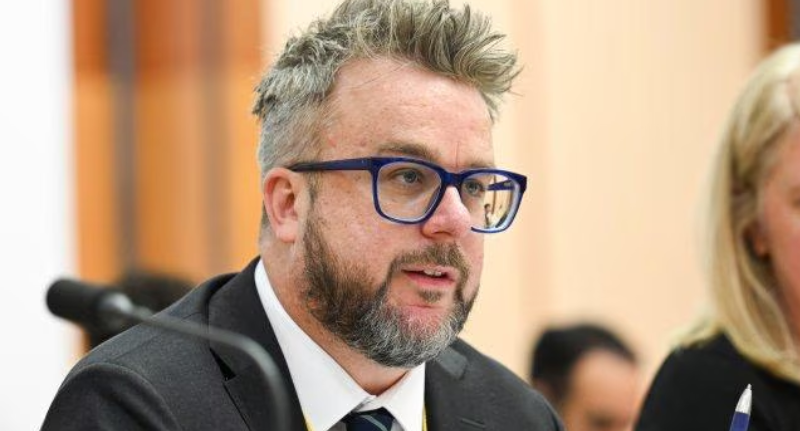
ABC gives news chief $110k bump as performance slides
It’s been a bruising stretch for the ABC, with the public broadcaster navigating legal defeats, a string of editorial controversies and 67 corrections on the record.
Yet amid the scrutiny, news director Justin Stevens received a $110,000 pay increase, taking his total package to $667,900 – as the ABC board moved to head off any further talent or leadership risk.
The decision has prompted fresh questions around financial stewardship at a broadcaster still seeking additional support for its $1.3 billion taxpayer-funded budget, even as Senate Estimates pressure continues to sharpen over transparency and editorial performance.
Numbers slide
The ABC’s 2025 annual report logged slippage across key performance measures, with community satisfaction easing from 81% to 79% and national weekly reach dipping from 61.9% to 60.4%.
Radio and digital also softened: Local Radio’s weekly reach dropped 8.4%, and the ABC News app recorded audience declines.
Editorial standards came under further pressure, with corrections and clarifications rising to 67 in 2024–25, up from 62 the year prior.
While total complaints were down, the average response time lengthened from 11 days to 16 – a datapoint unlikely to ease scrutiny from Parliament or the public.
Legal pressures
The broadcaster faced a costly legal defeat earlier this year when journalist Antoinette Lattouf won her unfair dismissal case, resulting in ABC paying more than $150,000 in compensation.
Meanwhile, Stevens copped a diplomatic hiding when he did not attend October’s Senate Estimates hearing, where ABC representatives faced tough questioning from Coalition senators about editorial oversight.
His absence drew criticism from Senator Sarah Henderson, who described it as a lack of accountability.
Amid the controversies, ABC managing director Hugh Marks defended the organisation’s integrity, saying the broadcaster’s team present at the hearing was more than capable of addressing the committee’s questions.
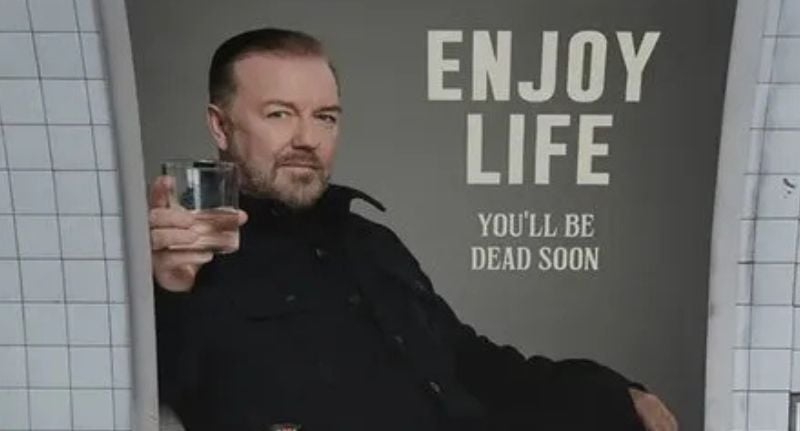
Ricky Gervais clashes with London transport body over 'rejected' vodka ads
Ricky Gervais has kicked off a brand-safety storm after claiming Transport for London (the UK authority behind the London Underground) rejected a series of dark-humoured ads for the comedian’s vodka brand, Dutch Barn, only for the network to fire back that the posters were never submitted.
Gervais posted mock-ups showing himself with vodka in hand alongside slogans such as “One day you’ll be underground for good” and “Welcome to London. Don’t forget your stab vest.”
He argued the Underground balked at an implied message that life is short so people should drink, leading to an expletive-laden gripe about censorship and “cowardly” decision-makers.
“It’s satire,” Gervais said.
“Sometimes there’s just nothing wrong with them.” Reaction was split: some fans called the ads “bangers,” others questioned whether the knife-crime nod was tone-deaf.
I suppose this is out of the question? pic.twitter.com/TxD9xCNBps
— Ricky Gervais (@rickygervais) November 3, 2025
Knife-crime context heightens scrutiny
The blow-up arrived as knife-violence concerns spiked in Britain.
A day after Gervais’ posts, two men attacked passengers on a high-speed train from Doncaster to London King’s Cross, injuring 11; police arrested two suspects on scene. While unrelated to terrorism, the timing sharpened sensitivities around messaging referencing violent crime, even in satire.
London transport says: ‘We never saw them’
TfL issued a brisk correction regarding Gervais’ claims: “These adverts were never referred to TfL or their advertising partners for consideration.”
The organisation noted other Dutch Barn ads are running on its network.
In a follow-up Instagram video, Gervais accused unnamed decision-makers of blocking harmless satire, saying he was “****ing sick and tired” of pushback on his billboards and mocking the idea anyone would see the ads as encouragement to drink excessively.
“Oh my God, cowardly ****ing **nts,” he said, before pivoting to a tongue-in-cheek vow to “sell directly to you… save donkeys, **** censors, Dutch Barn.”
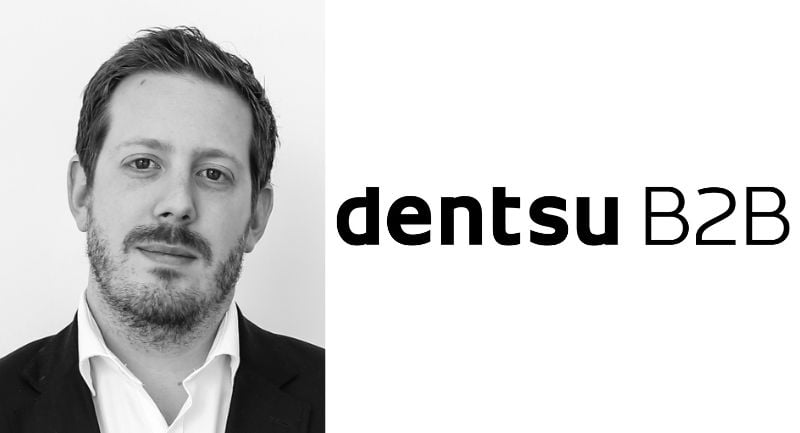
Jake Hird returns to dentsu to lead B2B growth and strategy
Dentsu has appointed Jake Hird as executive vice president – strategy and growth, dentsu B2B, marking his return to the agency network to lead the strategic development of its business-to-business arm.
Hird rejoins dentsu after a professional break, having previously served as vice president of strategy for dentsu B2B across Asia Pacific for more than six years. With over 15 years’ experience, his career spans roles at Accenture, Publicis Sapient and Econsultancy.
Reporting to Rob Harvey, CEO, dentsu ANZ, Hird will focus on expanding the agency’s B2B practice in Australia and strengthening its strategic solutions offering.
Driving B2B growth amid global transformation
According to eMarketer, global B2B digital ad spend is forecast to reach US$48.15 billion by 2026 as brands invest more heavily in connected, data-driven growth strategies.
Dentsu B2B was named the world’s number one global B2B marketing agency in 2025, with integrated teams delivering strategy, creative, CXM and media solutions across the Americas, EMEA and Asia Pacific.
Harvey said Hird’s return comes at a key moment for the business.
“It’s great to have Jake return to dentsu. When talented people choose to come back, it says a lot about the strength of our culture, the partnerships we’ve built with clients, and the momentum we’re creating across the business,” he said.
“Our B2B practice has seen incredible growth this year and there’s a real opportunity to double down on this capability in Australia. Jake’s deep expertise will help take it to the next level as we continue to expand and evolve.”
‘The right mix of ambition, creativity and care’
Hird said: “Returning to dentsu is motivating. It’s a business evolving fast, with the right mix of ambition, creativity and care. I’m looking forward to working alongside so many talented people across the network to strengthen our B2B presence and help clients tap into the full power of dentsu.”
The appointment is effective immediately, with Hird based in Sydney.

Bluey’s back! And The Heelers are heading overseas
Bluey is returning to New York for another spin through the Macy’s Thanksgiving Day Parade, marking a high-flying moment for the global juggernaut as fans endure one of the longest Heeler hiatuses yet.
The cartoon’s official Instagram page has confirmed the Bluey balloon will re-inflate for the parade, bouncing down Manhattan while playing a supersized game of Keepy Uppy.
The balloon, painted with 50 gallons of blue paint, will float above 3.5 million spectators and reach an estimated 50 million US viewers.

A little parade, a little patience
The parade cameo comes as the fandom marks more than a year without a full-length episode, with The Sign airing in mid-2024.
Since then, mini-episodes have kept spirits high… but let’s be honest, *some parents have refreshed their streaming apps like they’re stalking a Bunnings Hammerbarn sausage sizzle.
*It’s me. I’m the parent.
Meanwhile, we’re being promised the wait will be worth it. The next serving will be massive: a feature-length Bluey movie hits cinemas in 2027, written and directed by series creator Joe Brumm.
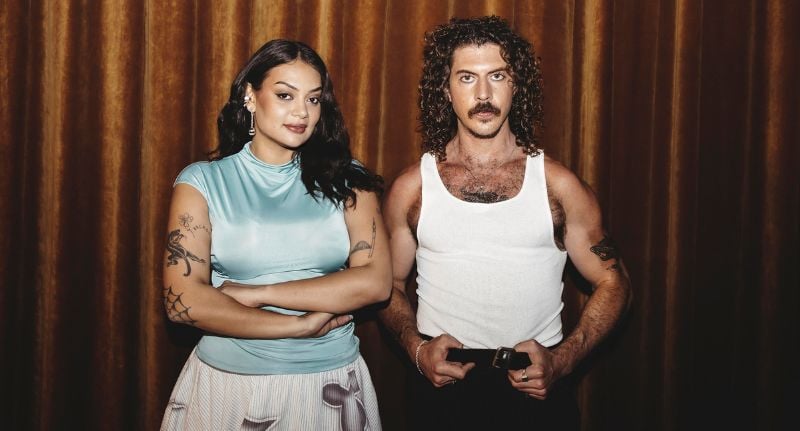
Ausify wants Aussies to hack the algorithm and boost local artists
Australia’s music industry is taking its algorithm problem head-on, with a new campaign urging fans to “Ausify Your Algo” and intentionally feed streaming platforms more homegrown talent.
Fronted by Thelma Plum, Keli Holiday and a run of rising acts, the push was created by Bureau of Everything, alongside partners Versus, Love Media and Thinking Loud, following a competitive pitch win in August.
The work taps into a familiar frustration for artists and fans – the algorithm loves global hits, often at the expense of Australian voices.
The creative flips that annoyance into action, encouraging listeners to Search. Listen. Defy. and actively reshape their feeds. In the hero film, Ben Lee doesn’t shy away from the point: “…this machine is obviously rigged.”
Bureau of Everything founder Cam Blackley said the idea leans into the national instinct to push back when systems feel stacked.
“The ‘Ausify Your Algo’ campaign is designed to appeal to the anti-establishment nature of Aussies; to get them up and about actively listening to and exploring homegrown artists,” he said.
“Searching the A-Z of Aus Music is the first step to unclogging the arteries of our airwaves in favour of local sounds.”
A movement dressed as a music drop
Rolling out across November for Ausmusic Month, the campaign pairs digital content with artist co-signs, surprise live moments and a daily alphabet parade of local creators.
Everyone from managers and festivals to labels, venues, streaming platforms and brands is joining the amplification effort.
Music Australia director Millie Millgate framed it as both cultural and behavioural: “We are launching #Ausify to encourage Australians to take back control of their algorithms and feed them with local sounds. Every local artist you seek out, play, follow, save, share, request and see live helps our musicians rise.”
A central hub at ausify.com.au houses how-to guides, curated playlists and a live recommendation generator built by ED Studios and powered by DISCO, essentially a discovery engine for people ready to clean up their algorithm diet.
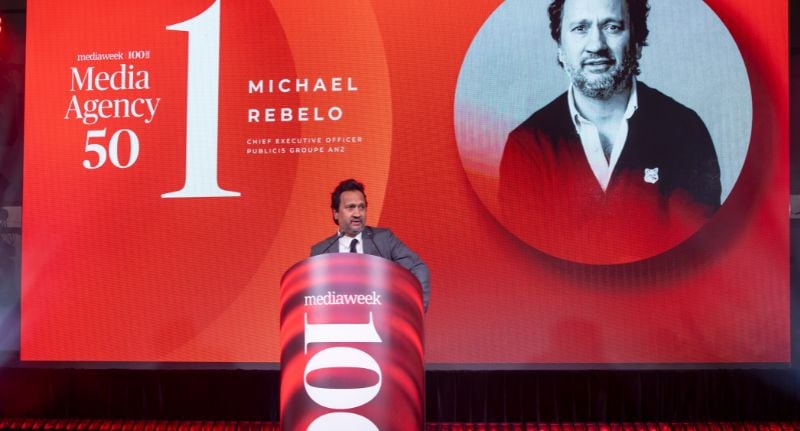
Michael Rebelo: “To lead, you must stay a student” as Publicis tops Mediaweek’s Agency 50
Publicis Groupe ANZ chief executive Michael Rebelo has reshaped the business into one of the region’s most powerful creative, media and technology networks, and 2025 marked a standout chapter.
His acquisition of Atomic 212° supercharged the Groupe’s full-funnel capability, while the launch of Publicis Edge sharpened its AI and innovation agenda.
Publicis Media went on to rank #1 for net-new business across Australia and New Zealand (COMvergence H1 2025), extending a five-year growth streak.
At the same time, the Groupe continued to lead on culture, earning Employer of Choice recognition again, while Rebelo played a key role industry-wide as Chair of the Advertising Council Australia and a board member of the MFA.
His Mediaweek 100 win acknowledges a leader setting the pace across capability, culture and commercial momentum.
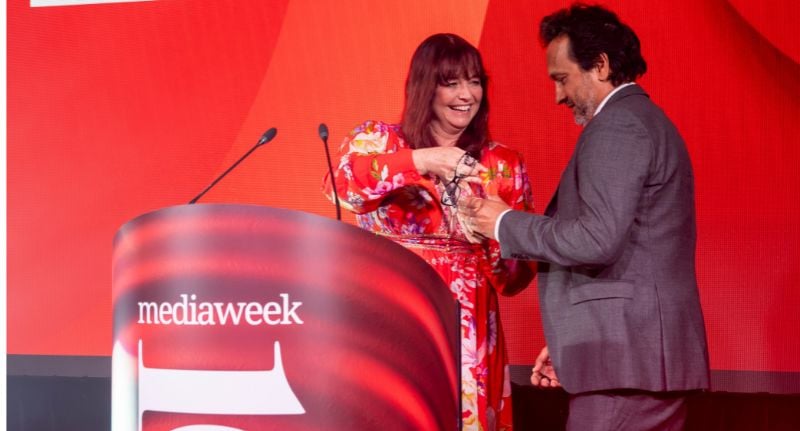
1. What does it mean to win an award like this?
I was genuinely humbled to receive this award. To be honest, I felt like a slight imposter, as I’m surrounded by outstanding media agency leaders in the Top 50 and, technically, I’ve never run a media agency.
My background was in leading creative agencies before taking the helm of Publicis Groupe ANZ in 2019. Since then, I’ve been deeply involved in our media practice and an avid student, learning from my exceptional media leaders every day. It has been an absolute masterclass, and I truly believe that to be a good leader, we must first be great students.
My leadership mantra has always been to surround yourself with the best people and focus on coaching, supporting, connecting and inspiring them to do great work.
This award is really a testament to the commitment and professional excellence of my CEOs in Australia, including Imogen Hewitt, Jason Tonelli, Matt Turl, Matt Houltham, Rory Heffernan and Anthony Ellis, who have partnered with me to drive the ongoing growth of our media business.
I also want to recognise Pauly Grant, Chief Talent Officer APAC & ANZ, and Henri Raymond, Chief Financial Officer ANZ, whose leadership and dedication ensure our continued success not just in media, but across our entire connected platform of businesses.
2. Why are awards and events like this important for the industry?
Our business is exciting and dynamic – that’s a big part of why I love what we do.
However, the media and marketing landscape is also becoming more complex, nuanced and challenging. Awards like the Mediaweek Media Agency 50, which celebrate the diversity of talent operating in this environment, are therefore crucial for our industry. Recognition and inspiration help keep our industry striving for excellence and play an important role in attracting and motivating the next generation of leaders.
3. What do you think this recognition says about the direction your company (or the industry) is heading?
We began transforming as a holding company around seven years ago.
We’ve worked hard to build the momentum and progress we’re now experiencing, and our media practice has played a critical role in that success. This is reflected in nine of our leaders making the Mediaweek Media Agency 50 list.
Our media practice ranked #1 for net new business across Australia and New Zealand in H1 (COMvergence 2025) and was further strengthened with the acquisition of Australia’s largest independent media agency, Atomic 212, earlier this year.
While media has been a key driver, the success of Publicis ANZ is ultimately rooted in our connected culture, which brings media, creative, data and digital together to serve our clients’ transformation needs. Mediaweek’s recognition further validates that this culture has created a sustainable, compounding advantage for the Groupe and our clients.
4. Looking ahead, what’s the most significant opportunity or challenge you see for your area of the industry right now?
We will all need to learn fast, fix fast and adapt fast. To remain progressive, competitive and sustainable amid rapid shifts in technology, methodologies, data, AI and automation, we must evolve and operate with that mindset. Agility will be our greatest asset.
5. Who or what has inspired your leadership approach?
Since taking on the ANZ role, I’ve been truly inspired by our global CEO, Arthur Sadoun. His vision, focus, energy and ability to galvanise Publicis Groupe are exceptional.
I’m also energised by the next generation – emerging strategic thinkers, creatives, innovators and leaders. I look to them for inspiration so I continue to stay current, engaged and challenged.
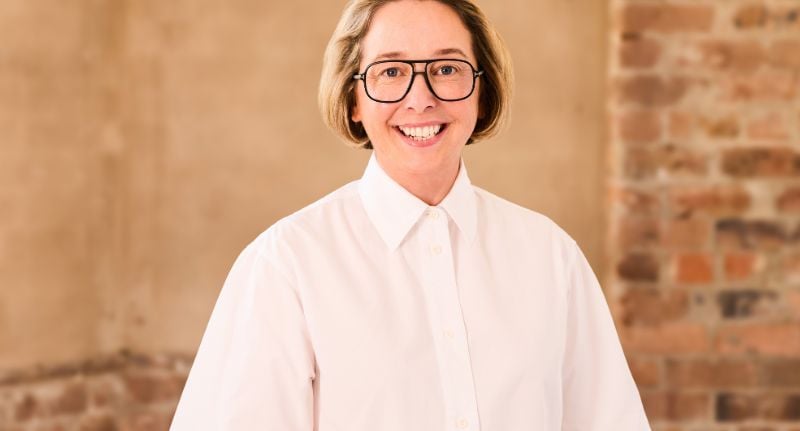
Drowning in data? Why context is the power skill marketers want now
As AI floods marketers with data, decision-making isn’t getting easier – it’s getting noisier. And, that’s creating fresh demand for specialists who can decode why people behave the way they do, not just measure what they click.
Enter 5D: a consultancy focused on decision-science, qualitative insight and brand strategy.
The firm works with clients to understand how cultural, social and emotional forces shape behaviour, then turns that into strategic frameworks, research programs and data-driven choices.
For director of brand and qualitative research Melissa Gilson, the moment couldn’t be clearer: “We bring critical and original thinking to every challenge, translating complexity into actionable solutions that drive measurable impact,” she told Mediaweek.
“With market-leading technical expertise, we leverage advanced tools and insights to decode choice at every level.”
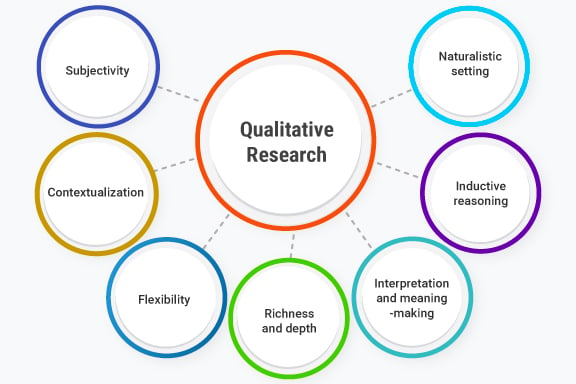
AI is a booster, not a replacement
While AI has transformed how data is collected and analysed, Gilson argues it has opened the door further for deep qualitative understanding.
“AI has changed the game, and what we’re missing now is the why,” she said.
“We have so much data about what people do. What we don’t have is what’s under the skin: things like why they make decisions, how cultural and macro forces influence them, and what that means commercially.”
She says the shift is visible in client behaviour. “I’ve worked in qualitative research for 25 years. I’ve always been busy, but we’ve never been busier. People are hungry for nuanced insight – a layered understanding of why people do what they do.”
And despite industry anxiety, she sees AI as a multiplier, not a threat.
“It’s naïve to say AI isn’t replacing some roles, but it’s incredibly valuable when used the right way. It speeds synthesis, adds rigor, and lets us talk to more people. But it still needs the human layer to interpret cultural nuance and meaning,” she said.
Decision-science delivered with experience
As brands grapple with overwhelming inputs, Gilson says the demand for senior strategic talent is accelerating.
“Clients lean on us hard: what does this mean? What should we do? Can you curate this? You can’t do that without deep experience. We bring cultural context and judgement – what’s signal versus noise.”
5D’s model links brand strategy to competitive context and customer experience, supported by proprietary frameworks, integrated data systems and behavioural research.
“No decision or insight is devoid of others,” she said. “We directly link brand strategy to competitive position and the lived brand experience.”
High stakes, high expectations
Gilson says the consultancy’s approach is grounded in discipline and iteration.
“It’s garbage in, garbage out. We build a very robust understanding of what the client needs before we start. And if something shifts, we pivot – change the approach, adjust the line of questioning. That takes confidence,” she said.
“We’ll keep seeing demand for experienced researchers who can connect dots. AI doesn’t remove the need for judgement – it makes good judgement even more valuable.”
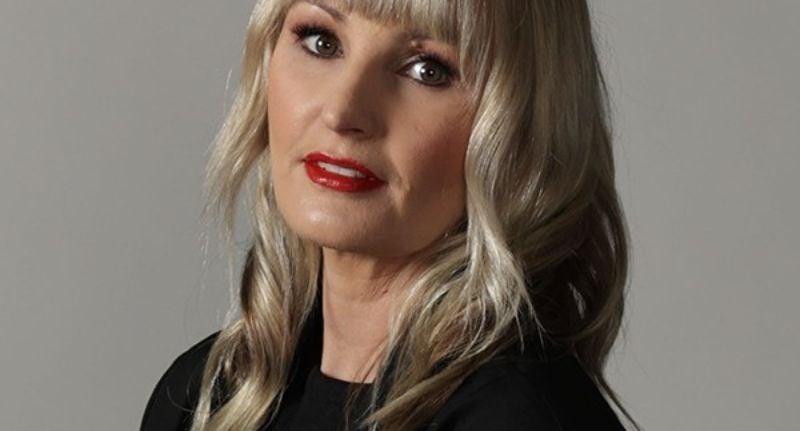
CEO Vanessa Picken exits Sony Music Australia and New Zealand
Sony Music Australia and New Zealand boss Vanessa Picken is stepping down after almost three years in the top job, with the company confirming her departure today.
Picken, who served as CEO and Chair, is understood to be finishing up effective immediately.
“It has been a privilege to lead such a dedicated and talented company, collaborating with so many inspiring artists and their teams,” Picken said in a statement on Monday.
The statement continued: “Supporting their growth, creativity, and bold visions has been one of the most rewarding aspects of my role. With my term now complete, I feel this is the perfect time to embrace my next opportunity.
“I am incredibly proud of what we have achieved together over the past three years, particularly during this transformative period for our Australia and New Zealand operations.
“We’ve modernised our organisational structure, enhanced our digital and marketing capabilities, and fuelled new growth through experiential and licensing ventures. Throughout it all, we’ve placed a renewed focus on artist wellbeing and deepened their connection to the team.
“As I move on from being the first woman to hold this role, I do so with great excitement for the future. I’m confident I won’t be the last, and I hope that in the process, I’ve inspired others to follow their own paths.”
A background marked by scandal
Picken took the top job at Sony Music’s domestic operations in June 2022, following the well-publicised removal of Denis Handlin, who had served with the company for 51 years, including 37 at the helm.
Rob Stringer, Chairman, Sony Music Group, added: “We extend our thanks to Vanessa for her time at Sony Music and for her commitment to guiding our artists’ careers and championing local creative talent. We wish her every success in the next chapter of her journey.”
In August, reports emerged that formal complaints had been made about Picken and an investigation into her behaviour was launched, which cleared her of any wrongdoing.
“During this chapter of significant transition for our Australian company, it is inevitable that there will be hurdles to overcome in the workplace,” reads a statement to The Music Network (TMN) issued by Sony Music Entertainment’s corporate communications team in New York.
“We continue to take any concerns within this environment seriously and look into them thoroughly and fairly,” the message continues. “With any type of inquiry, following our internal practices, policies, and adhering to local laws, we are conscious at all times of meeting our legal and governance obligations, respecting confidentiality and personal privacy. Any assertions made to the contrary are false.”
According to the Telegraph, some employees are said to have accused Picken of undermining senior employees, making inappropriate statements about people on maternity leave, and saying “rude and demeaning remarks” about staff.
The major music company reportedly engaged external counsel to conduct an investigation into those complaints, which, several months ago, ultimately found no evidence of wrongdoing.
“Since my appointment in 2022, my mandate as CEO and Chair of Sony Music Australia is to lead the cultural transformation of the company. That task was urgent, complex, and central to Sony Music’s future in this region,” Picken said in a statement, seen by TMN at the time.
“With the support of an executive team, I have sought to implement a program of cultural reform focused on transparency, respect, and accountability and I am proud of our achievements to date.
“Meaningful cultural change is challenging, but as we strive for continuous improvement across the business we are also invested in staff engagement, diversity and inclusion.
“I acknowledge that there is always more to do.”
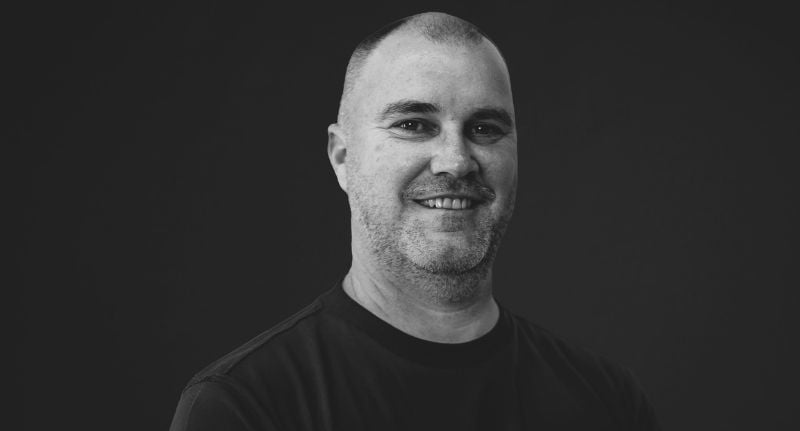
Nine Ad Manager puts local advertisers in primetime
“The rise of self-service platforms is one of the most significant shifts in media buying in
recent years. It’s a fundamental change that moves beyond simply automating a transaction;
it’s about radically democratising premium TV advertising.
“No platform exemplifies this disruption better than Nine Ad Manager, which is removing the barriers of television advertising and welcoming thousands of businesses of all sizes.
“For years, the power of premium video, the kind of advertising that drives a brand to household name status, was reserved almost exclusively for the biggest players.
“It was a market defined by high costs, long lead times, and complex negotiations. In the modern, fractured media landscape, where attention is a scarce commodity, SMBs really only had access to Social and Search platforms which have become highly cluttered and expensive.
“While effective for lower funnel activity, these channels often lack the instant credibility and
mass market impact of television.
“Nine Ad Manager changes that equation entirely. It’s an easy to use digital solution that
allows any size business access to TV advertising. By leveraging the technology of self-
service, Nine has unlocked its most valuable, high-impact inventory on 9Now.
“Nine Ad Manager gives any business access to Australia’s most watched premium content, from The Block to Married at First Sight and the biggest sporting content in Australia from the State of Origin, NRL and The Olympic games.
“The most powerful advantage this platform offers is credibility by association. When a local
business’s advertisement appears within the same ad break as a national bank or a major
retailer, it instantly borrows that same level of professionalism and trustworthiness.
“In the minds of the viewer, the small bakery or the local real estate agent has been elevated. This halo effect or as we call it when “small goes big” is a massive, intangible asset that has been historically inaccessible to those with modest budgets.
“Coupled with postcode targeting these businesses are able to appear on the big screen in their local area.
“The financial barrier to entry has also been removed. Previously, running an ad on television
required a significant upfront commitment. Nine Ad Manager has introduced a level of
affordability and financial flexibility that allows a small business owner to launch a campaign
with a minimal budget, with campaigns starting from $550.
“This cost-efficiency is a game-changer, moving premium video from a long-term aspiration to an immediate, actionable marketing channel that can be tracked with the Nine Ad Manager tracking pixel.
“Ultimately, Nine Ad Manager’s success is a testament to its direct challenge to the digital
giants. It provides SMBs with a brand-safe, quality environment, a crucial differentiator
against the frequently unpredictable and sometimes not brand safe nature of open-web
inventory.
“By offering a streamlined path to the biggest screen in the home, Nine Ad Manager is providing a necessary and powerful alternative for businesses that want their message to resonate above the skippable and scrollable nature of social media.
“This shift isn’t just a win for Nine; it’s a massive advantage now for the 2.2 million Australian
SMBs who now have the tools to convert their businesses into household names.
“The premium media wall has fallen, and the self-service revolution is making primetime
accessible to everyone.”
Explore the Nine Advantage today: https://www.nineforbrands.com.au/ninein2026/
Media
Question cut from Trump ’60 Minutes’ interview
As The Daily Beast’s Cameron Adams details, Trump bristled at the line of questioning, but audiences never saw it in the broadcast or the extended online cut.
The exchange still sits in the official written transcript, which you can read here.
Paramount renews Jon Stewart
As Variety’s Brian Steinberg writes, Stewart has signed on for another year fronting The Daily Show once a week, and will remain executive producer through 2026.
Radio
AI
OpenAI inks mega cloud deal with Amazon
As the BBC’s Michael Sheils McNamee, Danielle Kaye report, the ChatGPT maker has reportedly struck a seven year, $38 billion contract with Amazon to secure serious compute power, tapping into AWS infrastructure and Nvidia chips to keep its AI engines humming.
